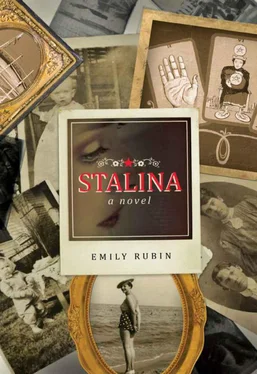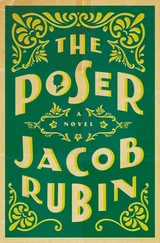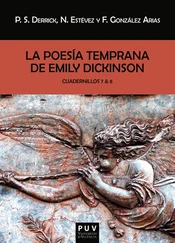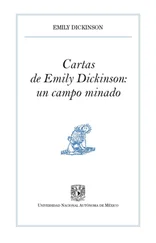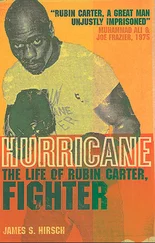“Do you like fish?” I asked.
“Bass season starts soon. How’d you know?”
I pointed to his hat.
“My girls sent me a year of Bassmaster magazine for my birthday.”
“They must appreciate their father very much.”
“Nah, they just like to get me out of the house.”
The radio started to squawk. He picked up the mouthpiece. “Bassman, over.”
A woman’s voice came on. “Hey, good lookin’, get that junk heap of yours over to Charleston’s Bar. Barry needs a ride home; his wife has to leave for work. Over.”
“That’s Randi; she’s a ball buster,” he said, looking at me in the rearview mirror.
Then into the radio again he said, “Keep your titties straight, mama, I’m on my way. Over.”
“Fuck off, lover, over,” she replied.
“I’m just finishing up with Star Lane, sweet meat, over.”
Then he turned back to me. “She and I have known each other since high school.”
“I live here with Amalia; we’ve know each other since we were children.”
“Are you going to be all right?” My swollen eyes must have concerned him.
“Yes, thank you, now that I am here. It’s my mother; I just found out she died. She was still in Russia.”
“I’m sorry. It’s like that, people and things go away, they end, leave us to ourselves.”
“Yes, they do. Thank you, Mr. Bassman.”
I was still holding on to the strap behind the driver. It was a comfort to hang on to something. I drifted back to St. Petersburg for a moment as I started getting myself out of the cab.
* * *
“It’s just not practical. We are not going anywhere,” Trofim had said without looking in my eyes.
It was a summer night. I was just nineteen and in love.
We met to watch the bridges go up over the Neva.
“Opening the bridges is a practical thing,” I said. “We may not be able to travel to the other side of the river, but it saves the government money. They don’t have to pay anyone to operate the bridges through the night.”
He wanted to end our relationship, not debate bridge operations.
“Stalina, this is not about the bridges,” he said, looking down at the water.
The river was black and oily. Our faces reflected in the lapping waves looked like photographs developing in a darkroom. I watched the light in the sky disappear. It was gone for just minutes, and when it began to get light again, Trofim was already walking across the bridge before it was even fully down. He never turned around. I stood motionless until everyone rushing to get home to change for work pushed me along the canal. He was gone. It felt like someone had died.
* * *
Many years later, in Connecticut, USA, I felt a similar emptiness. As I stood outside the cab, the rain started coming down harder. My cheeks stung with the salt of my tears. I leaned through the window to pay the driver.
“It’s been taken care of, miss. Your boss paid for the ride. Go. Get out of the rain.” He shook the crumbs from his mustache.
“Mr. Suri is a very nice man,” I told the driver.
I heard the dispatcher’s voice over his radio again. “Move it along, Barry the Barfly just fell off his barstool.”
“On my way, general, ma’am,” he said to the radio. And then to me he said, “Take it easy, miss. Get yourself inside.” He drove away.
Amalia opened the door and came out with an umbrella over her head. “Stalina,” she said, “come in out of the rain. You’re home.”
It was good to be home.

Chapter Sixteen: Invention
I wondered if the people at the rooming house mourned for my mother, if anyone was there when she died. I’d have liked to know how it was for her. I felt badly that I had not stayed until she died.
“Stalina, I’ve made some tea. Come sit,” Amalia said as she guided me to the kitchen with her arm around my shoulder.
“It’s too early to call St. Petersburg,” I said, looking at the cuckoo clock.
Eight hours’ difference. Seven thirty here, three thirty in the morning there. Time changes, but the distance stays the same.
“It will be morning soon. You’ll be able to call in a few hours,” Amalia said quietly. “I’ll sit with you.”
“Thank you, that’s very kind.”
“Stalina, I was sorry to have to tell you about your mother.”
“When I left, she was angry and sad and sick. I wanted her to come with me.”
“She wanted to die in her Leningrad,” Amalia reminded me.
“Yes, probably so. She never did like calling it St. Petersburg.”
“It was her choice. Will you go?”
“The nurses at the rooming house can make the arrangements. Do you think I need to identify her, or sign for her in person?” Suddenly I wasn’t sure.
“I wouldn’t know, but it has to happen soon. They aren’t going to keep her around.”
“I could barely get there in time for everything to happen as it is supposed to.”
“Speak to the nurses first, then we’ll see,” Amalia said. Pulling a small package out of her purse, she continued. “Let me show you my new glass figurine. It’s a terrier; it reminded me of your dog when we were growing up.”
“Pepe?”
“I couldn’t remember his name. Doesn’t this look like him?” she said as she pushed the glass figure across the kitchen table to show me. She collects glass miniatures that she displays on the windowsill in the kitchen. A unicorn, a turtle, an elephant, and a replica of the Cathedral of the Spilled Blood from home.
“I loved that dog.”
“What happened to him?”
“My father had him put down. It was that little wretch Nadia’s fault.”
“I don’t remember the details, Stalina.”
If Amalia wanted to distract me from my sorrow, she was doing a good job. When Pepe was taken away, at first I was very sad, and then I was angry.
“Tell me about Pepe,” Amalia insisted.
I explained how after months of tears and temper tantrums, my parents allowed me to have a dog. As an only child, I longed for a companion. My friend Mina had a canary, and my parents thought a bird was a good idea for a pet. I told them the cage bothered me, and when I visited Mina, it was all I could do to keep myself from letting the poor bird go free.
Pepe came from the cages of a dog pound in Leningrad. All those dogs waiting and barking—I wanted them all. The moment he was let out of the cage, he stayed by my side. He was a full-grown terrier mix and seemed very relieved when I fastened the brand-new red leather collar around his curly brown neck. He loved to dig in our backyard and bury things in the crumbly black soil.
On a warm Sunday in August 1949, Mikhail and Andrei, the twin brothers with identical limps who lived next door, and Nadia and Lara, the two blond-haired sisters, twelve and nine years old, whose backyard faced ours, came over to play. The adults were playing cards and drinking tea in the shade. Nadia immediately began organizing and explaining the rules to the game that would alternately put one of us in the center of a circle reaching to catch a fist-sized beanbag tossed overhead. If you caught the beanbag, you got to choose someone to kiss behind the old cherry tree.
“We all stay seated,” Nadia explained. “That’s what makes it hard.”
Pepe was running around our circle wanting desperately to take part, but Nadia would not let him.
“Why don’t you tie that unruly mongrel up? He’s ruining everything,” she said, just like an adult.
“Don’t be such a big boss, Nadia. He will sit when I ask him to. Here boy, Pepe, Pepe,” I said. He was panting, looking longingly at Nadia’s left hand, which held the peach-sized beanbag with a tight, controlling fist.
Читать дальше
